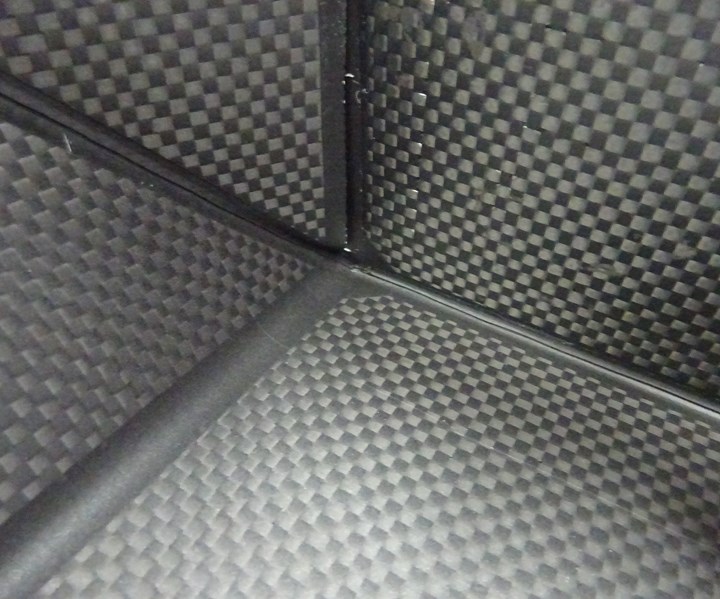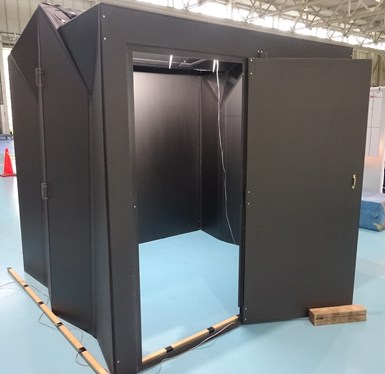Teijin develops foldable fiber-reinforced plastic structure
ORIBAKO, a polyhedron structure comprising FRP panels connected by hinges, is expected to be commercially available in 2022.

ORIBAKO prototype. Source | Teijin Ltd.
Teijin Ltd. (Tokyo, Japan) and GH Craft Ltd., Teijin's composites design, development, prototype and evaluation unit, has announced the development of ORIBAKO, a new foldable fiber-reinforced plastic (FRP) structure, to be commercially available by 2022.

Prototype of a structure built using ORIBAKO panels. Source | Teijin Ltd.
ORIBAKO comprises a polyhedron structure made of FRP panels and hinges said to be easily transported, deployed, folded away and stored. FRP with soft resin is used for the hinges to provide elasticity, flexibility and durability as well as a tight seal. The product can be produced in a variety of shapes and sizes, such as small boxes or simple architectural structures. The FRPs used for the panels and the hinged sections are designed for seamless integration to ensure airtightness and a smooth surface with no ridges. Depending on the application, the composition of materials used for the panels and hinges of the ORIBAKO can be adjusted to incorporate properties such as sound absorption, heat insulation or shock absorption, Teijin says.
Teijin and GH Craft say they will continue to enhance ORIBAKO’s properties by expanding the range of materials used in its construction, aiming to make it commercially available by 2022. Expected applications of ORIBAKO include temporary indoor spaces with external solar panels, and for delivery containers requiring easy and rapid cargo changes and a tight seal.
Related Content
-
Rocket Lab begins installation of large AFP machine for rocket production
The 99-ton AFP machine, custom-designed and built by Electroimpact, is claimed to be the largest of its kind, expecting to save around 150,000 manufacturing hours in the Neutron rocket’s production process.
-
Dawn Aerospace reusable rocket-powered aircraft flies twice in one day
Eighth and ninth flights of composites-intensive Mk-II Aurora reach an altitude of 63,000 feet, demonstrates same-day reusability capability for rocket-powered systems.
-
Sinonus launches energy-storing carbon fiber
Swedish deep-tech startup Sinonus is launching an energy-storing composite material to produce efficient structural batteries, IoT devices, drones, computers, larger vehicles and airplanes.

.jpg;width=70;height=70;mode=crop)







.jpg;maxWidth=300;quality=90)






